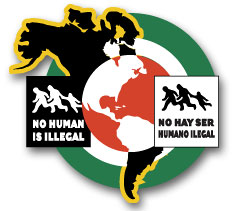


 |
 |
||||
 |
|||||
|
National Immigrant Solidarity Network Los Angeles: (213)403-0131 The National Immigrant Solidarity Network (NISN) is a coalition of immigrant rights, labor, human rights, religious, and student activist organizations from across the country. We work with leading immigrant rights, students and labor groups. In solidarity with their campaigns, and organize community immigrant rights education campaigns. From legislative letter-writing campaigns to speaker bureaus and educational materials, we organize critical immigrant-worker campaigns that are moving toward justice for all immigrants! Appeal for Donations! Please support the Important Work of National Immigrant Solidarity Network! Send check pay to: Information
about the National Immigrant Solidarity network See our Flyers Page to download flyers
|
|